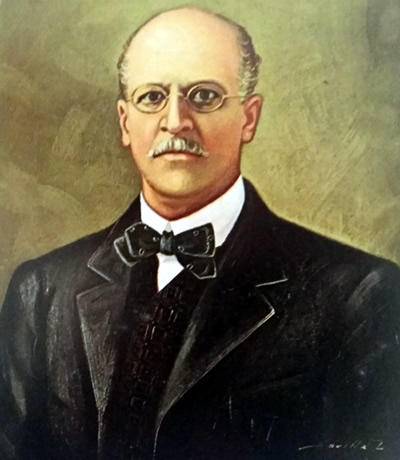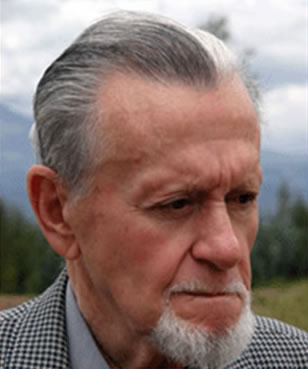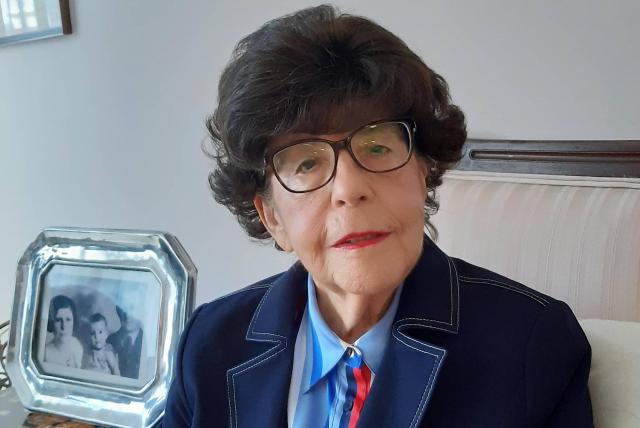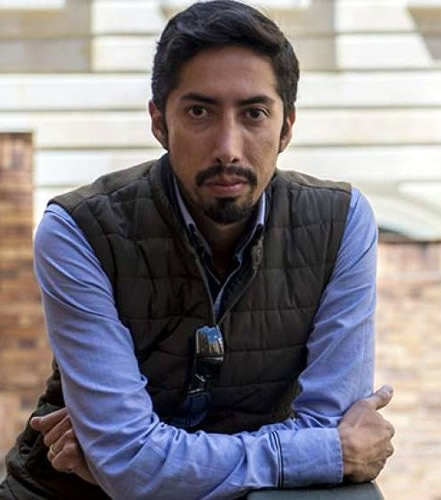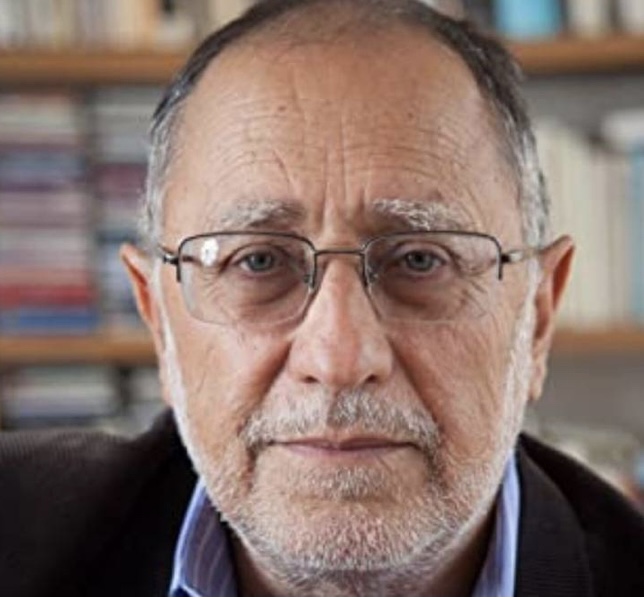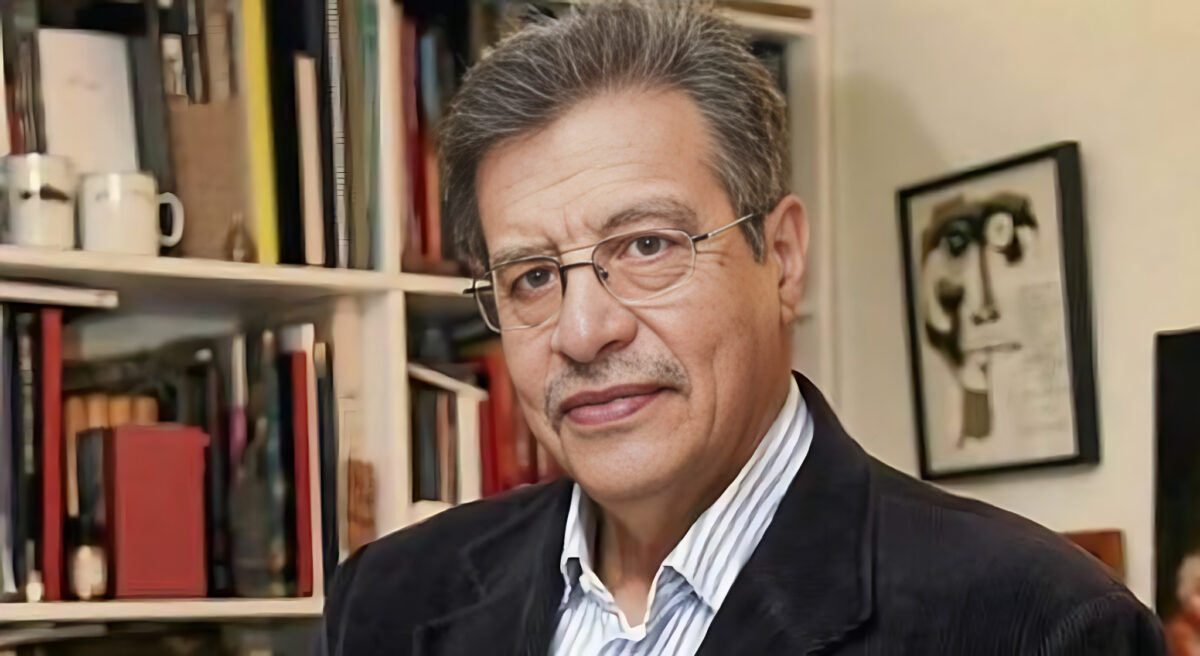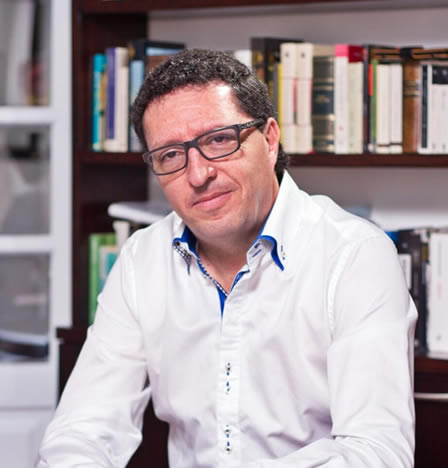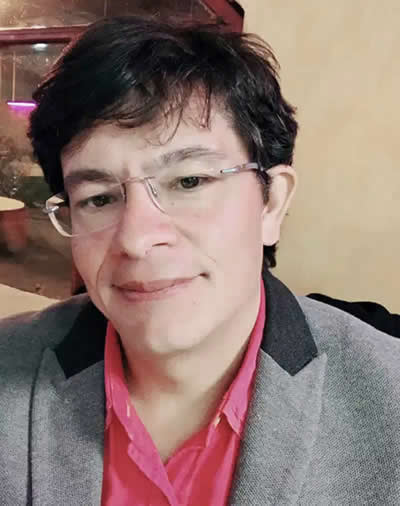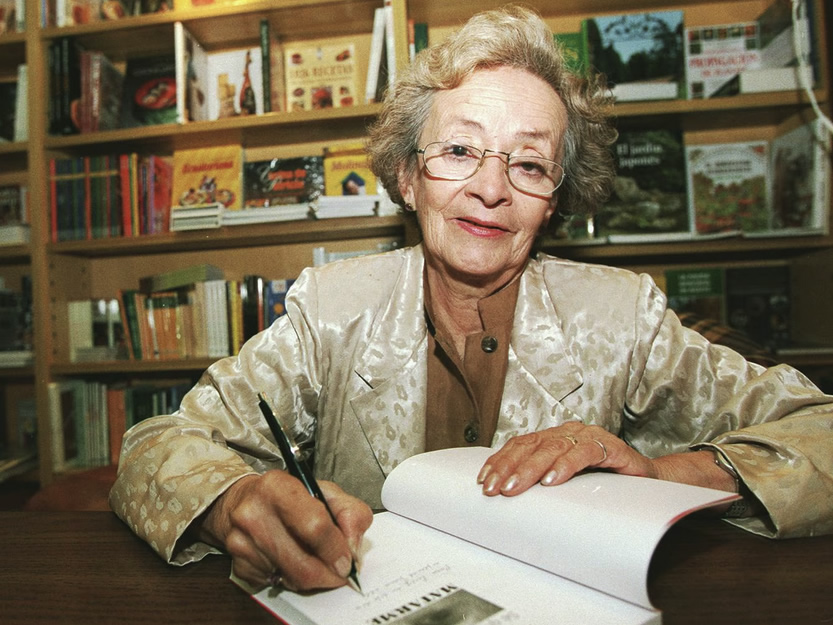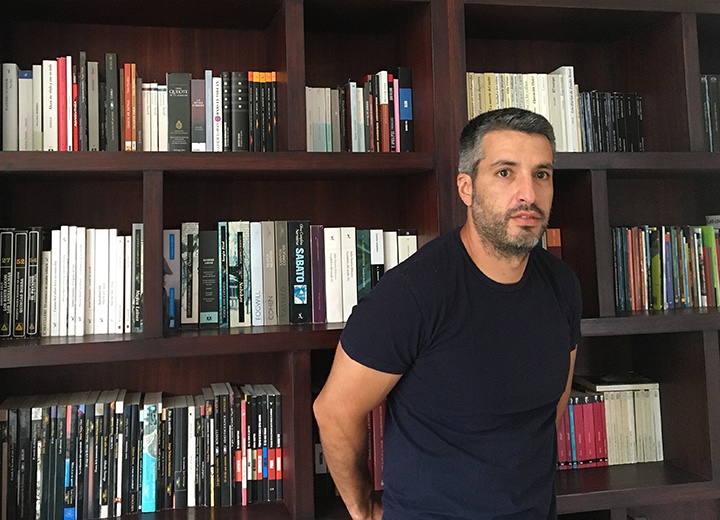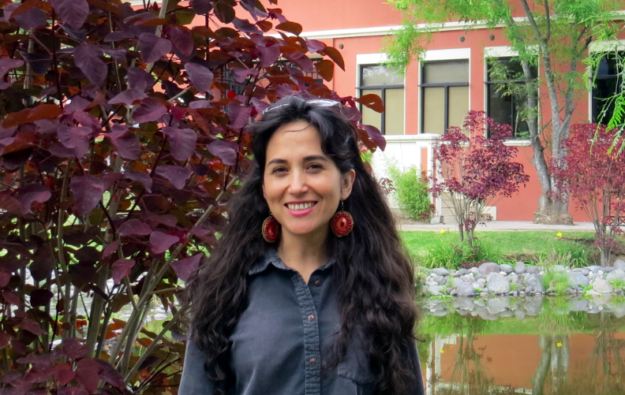César Borja Lavayen (Quito, February 6, 1851 – Guayaquil, January 31, 1910) was a writer, poet, translator, physician, politician and professor. He was educated at the National University of San Marcos in Lima, Peru. He served as the Deputy of the National Congress of Ecuador, and mayor of Guayaquil (1903-1904). He was a member of the Ecuadorian Academy of Language (since 1901) and in the latter part of his life was the rector of the Central University of Ecuador (since 1908). For political reasons, he lived various years in exile in Costa Rica. On his return to Ecuador, Borja was appointed to various important posts by President Eloy Alfaro.
Continue reading “César Borja Lavayen”Category: Writers from Quito
Filoteo Samaniego
Filoteo Samaniego Salazar was an Ecuadorian poet, novelist, translator, historian and diplomat. He was born in Quito on July 11, 1928 and died in the same city on February 21, 2013. Since 1984 he was a member of the Ecuadorian Academy of Language, and was its secretary from 1996–2006. Samaniego’s diplomatic career began in 1949 as the chief of staff of Ecuador’s Ministry of Foreign Affairs. He served as Ecuador’s Ambassador to Germany, Egypt, Austria and Romania. Among his translations is Cronica, 1961, (originally Chronique, 1960), by the French Nobel laureate Saint-John Perse. Among Samaniegos’ most popular poetry books are Agraz (1956), Relente (1958) and Umiña (1960), and he is the author of the novel Sobre sismos y otros miedos (1991). In 2001 he was awarded Ecuador’s top literary prize, the Eugenio Espejo Award.
Continue reading “Filoteo Samaniego”Lupe Rumazo
Lupe Rumazo Cobo (Quito, Ecuador, October 14, 1933) is an Ecuadorian writer and essayist known for her philosophical reflections and innovative narrative techniques. Her works, spanning essays, short stories, and novels, explore themes of identity, exile, and existential struggle. Notable authors like Ernesto Sábato, Juana de Ibarbourou, and Benjamín Carrión have prologued her works. A member of the Ecuadorian Academy of Language, the House of Ecuadorian Culture, and the Circle of Venezuelan Writers, she has lived in Venezuela since 1973. Though initially more recognized in Venezuela, she is now regarded as one of Ecuador’s most significant literary figures.
Continue reading “Lupe Rumazo”Jorge Luis Cáceres
Jorge Luis Cáceres is an Ecuadorian short story writer, editor and anthologist. He was born in 1982 in Quito. In 2013 he published a best-selling anthology titled No entren al 1408, a tribute to the “master of horror” Stephen King. The original edition of the book consisted of 22 Spanish-language horror stories by authors from various countries. Subsequent editions contained stories by authors of up to 30 countries, including Ecuador, Cuba, Argentina, Peru and Mexico. In 2012, he was recognized as one of “the 34 Latin American authors of unquestionable literary quality” at the Guadalajara International Book Fair.
Continue reading “Jorge Luis Cáceres”Carlos Arcos Cabrera
Carlos Arcos Cabrera (Quito, 1951) is an Ecuadorian sociologist and writer. He began his writing career with the novel “Un asunto de familia” in 1997, followed by “Vientos de agosto” in 2003 and “El invitado” in 2007, both of which won the Joaquin Gallegos Lara Prize in their respective years of publication. He has also written books for young people, including “Memorias de Andrés Chiliquinga” in 2013, which features the character Andrés Chiliquinga from Jorge Icaza’s 1934 novel “Huasipungo.”
Continue reading “Carlos Arcos Cabrera”Abdón Ubidia
Abdón Ubidia is a novelist, short story writer and playwright. He was born in Quito in 1944. He is considered one of the most important voices of modern Ecuadorian literature. In 1986 he published Sueño de lobos, which was hailed by critics as the book of the decade. It was translated into English in 1996 as Wolves’ Dream. In 2012, President Rafael Correa awarded Ubidia with the Eugenio Espejo Prize in Literature, Ecuador’s top literary prize. Ubidia’s books have been translated into many languages.
Continue reading “Abdón Ubidia”María Fernanda Heredia
María Fernanda Heredia Pacheco (Quito, March 1, 1970) is a prolific Ecuadorian writer, illustrator, and graphic designer. With a rich portfolio of short stories and novels tailored for children and young adults, she’s made notable contributions to Latin American literature. One of her standout achievements is her debut novel, “Amigo se escribe con H” (2002), which garnered the prestigious Norma-Fundalectura Latin American Children’s and Youth Literature Award that same year. Since 2008, she has contributed to Hogar magazine as a regular columnist, focusing on adult audiences. Among her numerous accolades, she’s been honored with the Darío Guevara Mayorga National Children’s and Young Adult Literature Award on multiple occasions, the “A la orilla del viento” Prize, the Benny Award from the Printing Industries of America (PIA) for outstanding children’s book illustration, and most recently, the esteemed Premio Cervantes Chico (Little Cervantes Prize) in 2023. She currently lives in Lima, Peru.
Continue reading “María Fernanda Heredia”Óscar Vela
Óscar Vela Descalzo is an Ecuadorian lawyer and writer who is considered one of the most representative contemporary literary voices of Ecuador. He was born in Quito, Ecuador in 1968. His novels Desnuda oscuridad (2011) and Todo ese ayer (2015) both won the Joaquín Gallegos Lara Prize for best novel of the year. His novel Yo soy el fuego (2013) won the Jorge Icaza Prize. His novel Ahora que cae la niebla (2019) tells the story of Manuel Antonio Muñoz Borrero, an Ecuadorian diplomat stationed in Stockholm during World War II who issued passports to hundreds of Jews in order to save their lives. His latest novel, Los crímenes de Bartow, was published in 2021. Since 2019 he has been a member of the Ecuadorian Academy of Language.
Continue reading “Óscar Vela”Marcela Ribadeneira
Marcela Ribadeneira (Quito, 1982) is a writer, journalist, film critic, and visual artist, renowned for her profound exploration of themes like mortality, bio-experimentation, and the normalization of terror. Educated in film directing at the Scuola Internazionale di Cinema e Televisione in Rome, her artistic endeavors span across various mediums. Ribadeneira’s notable literary work, “Golems,” reflects her unique blend of literary and cinematic insights. She is the co-founder of the publisher La Linea Negra with her husband, Eduardo Varas. Her stories and journalistic articles have been published in magazine such as: Gatopardo Ecuador, Ronda (Iberia), SoHo, Mundo Diners, Siente (Tame), In and Vamos (Latam).
Continue reading “Marcela Ribadeneira”Cristián Londoño Proaño
Cristián Londoño Proaño is an Ecuadorian science fiction and fantasy writer, poet, screenwriter, film producer and director. He was born in 1973 in Quito, Ecuador. He has invented and developed the concept of the Andean fantasy novel. Most notable among his novels is the “El Instinto de la Luz” trilogy, which consists of the books El Instinto de la Luz (2011), El Tiempo Muerto (2015), and El retorno de la luz (2018).
Continue reading “Cristián Londoño Proaño”Alicia Yánez Cossío
Alicia Yánez Cossío (Quito, September 10, 1928) is an Ecuadorian novelist, poet, short story writer, and journalist. She is considered one of the 2oth Century’s most important literary figures of Ecuador and Latin America. Since 1991 she has been a member of the Ecuadorian Academy of Language. In 1996, with her novel El cristo feo (1995), Yánez became the first Ecuadorian to win the Sor Juana Inés de la Cruz Prize (Guadalajara, Mexico), one of the most prestigious awards for female authors in the Spanish speaking world. In 2008 she received Ecuador’s highest literary award, the Eugenio Espejo Award, for her lifetime of work.
Continue reading “Alicia Yánez Cossío”Peky Andino
Peky Andino Moscoso (Quito, September 19, 1962) is an Ecuadorian playwright, a screenwriter, television director, actor and poet. Andino’s plays have won several awards, such as the Joaquín Gallegos Lara Prize (2006 and 2011), the National Prize of the Arts, and the Otto Castillo Prize for Experimental and Political Theater. As an actor, he has appeared in Sebastián Cordero’s film “Ratas, ratones, rateros” (1999) and Fernando Mieles’s film “Prometeo deportado” (2011). He has been a screenwriter and director of various TV shows. He is the creator and lead director of the telenovela “Sharon La Hechicera” (2018). Among his best known theatrical pieces is the play Medea llama por cobrar (2006), in which he recreates the drama of Ecuadorian families who had to emigrate during the economic crisis of 1999 through a plot with multiple parallels to Euripides’ Greek tragedy Medea. In 2014 he published his first book of poetry Moscas de plata.
Continue reading “Peky Andino”Andrés Cadena
Andrés Cadena (Quito, 1983) is an award-winning short story writer. His debut collection of short stories “Fuerzas ficticias” (2012) was given the Pichincha Award by the province of Pichincha. His second book “Altanoche” (2016) won the Joaquín Gallegos Lara Prize. His most recent book, “Camino errado” (2020) won the Miguel Donoso Pareja Prize at the Guayaquil International Book Fair.
Continue reading “Andrés Cadena”Gabriela Ponce
Gabriela Ponce Padilla (Quito, Ecuador, November 13, 1977) is an Ecuadorian writer, playwright, theatre director, and professor at the Universidad San Francisco de Quito. She debuted with Antropofaguitas (2015), a short story collection that established her literary presence. Her play Lugar won the Joaquín Gallegos Lara National Literature Prize in 2018, and her novel Sanguínea (2019), which explores pain, eroticism, and love through metaphors of blood and menstruation, received the same prize for Best Novel in 2021. Sanguínea was translated into English as Blood Red (2022).
Continue reading “Gabriela Ponce”Gabriela Fernández Argüello
Gabriela Fernández Argüello is an Ecuadorian writer. She was born in Quito in 1971. Her collection of 11 short stories La noche de Eva was awarded the Aurelio Espinosa Pólit Prize in 2004.
Continue reading “Gabriela Fernández Argüello”
